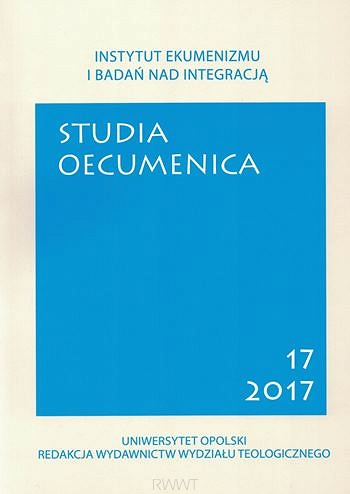Kontekst teologiczno-historyczny współczesnej eklezjologii ewangelickiej – perspektywa ekumeniczna
The Theological-Historical Context of the Modern Protestant Ecclesiology – an Ecumenical Perspective
Author(s): Marcin HintzSubject(s): Christian Theology and Religion, Theology and Religion
Published by: Uniwersytet Opolski
Keywords: ecclesiology; Protestantism; understanding of the church office;
Summary/Abstract: Since the beginning of the 16th century the western Christianity’s is divided into two confessional families: Roman Catholicism and Protestantism. The evangelical Churches are present in two main confessional variants: (Lutheranism and Calvinism. Each of them created a special version of the Ecclesiology. The Lutheran understanding of the Church was defined in The Augsburg Confession, Art. 5: “That we may obtain this faith, the Ministry of Teaching the Gospel and administering the Sacraments was instituted”. For Lutherans is the Teaching of the Gospel and the proper administering the Sacraments their notae ecclesiae - constitutive remarks of a church. The protestant Churches in their national form were divided into autonomous, independent structures without any closer connections one to each other. The foundation of the Lutheran World Federation in 1947 was a result of a long process of looking for a deeper bond between the Lutherans all over the world. The other ecclesiological process took part between Lutherans and Reforms in Europe. In the year 1973 was established the Leuenberg Unity of Protestant Churches, which changed the official name into Community of Protestant Churches in Europe – CPCE in 2003. From both organisation LWF as well as CPCE came a several important ecumenical documents related to the problematic of Ecclesiology. The most important ecclesiological study of CPCE is The Church of Jesus Christ. The Contribution of the Reformation towards Ecumenical Dialogue on Church Unity, from 1994.
Journal: Studia Oecumenica
- Issue Year: 2017
- Issue No: 17
- Page Range: 27-50
- Page Count: 24
- Language: English, Polish

